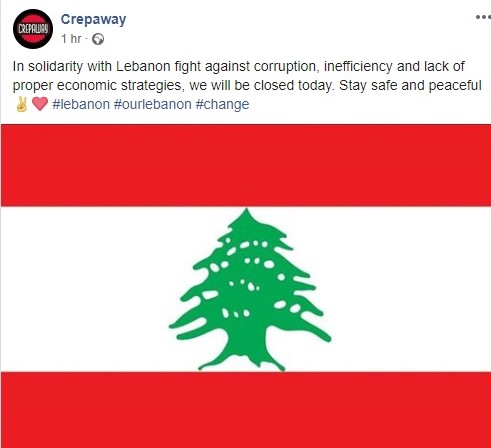To advertise or not to advertise?
In answer to that crucial question, two schools of thought emerged: one posited people need a sense of ‘normalcy’ when everything is crumbling all around them; the other, more austere, insisted that there were more important priorities than luxuries such as ads.
When the crisis first started in October and with no one knowing how long it would take to subside or how serious it would be, most organizations refrained from committing to either strategy. Many declared they would be closed on such and such day; only local food joint Crepaway (popular with the middle- to high-income bracket) went a step further, posting: “In solidarity with Lebanon [sic] fight against corruption, inefficiency, and lack of proper economic strategies, we will be closed today. Stay safe and peaceful.” The message’s tone made a stark contrast with the cautious one, other institutions were adopting.

As the situation went from bad to worse, belt-tightening prevailed further. People’s buying power dropped so much that most stores announced massive sales as early as the beginning of December – usually the busiest month of the year, it ended up barren. The flurry of ads accompanying end-of-year festivities was nowhere to be seen this year: only one restaurant and one hotel advertised, and with C-list celebrities.





